The Job of Genre
On Dear Writer this week we took on the task of defining genre—what it is and how it’s useful to writers. We looked at the importance of genre from both the reader and the writer experience. Knowing the function of genre can help you to craft and sell a mesmerizing story.
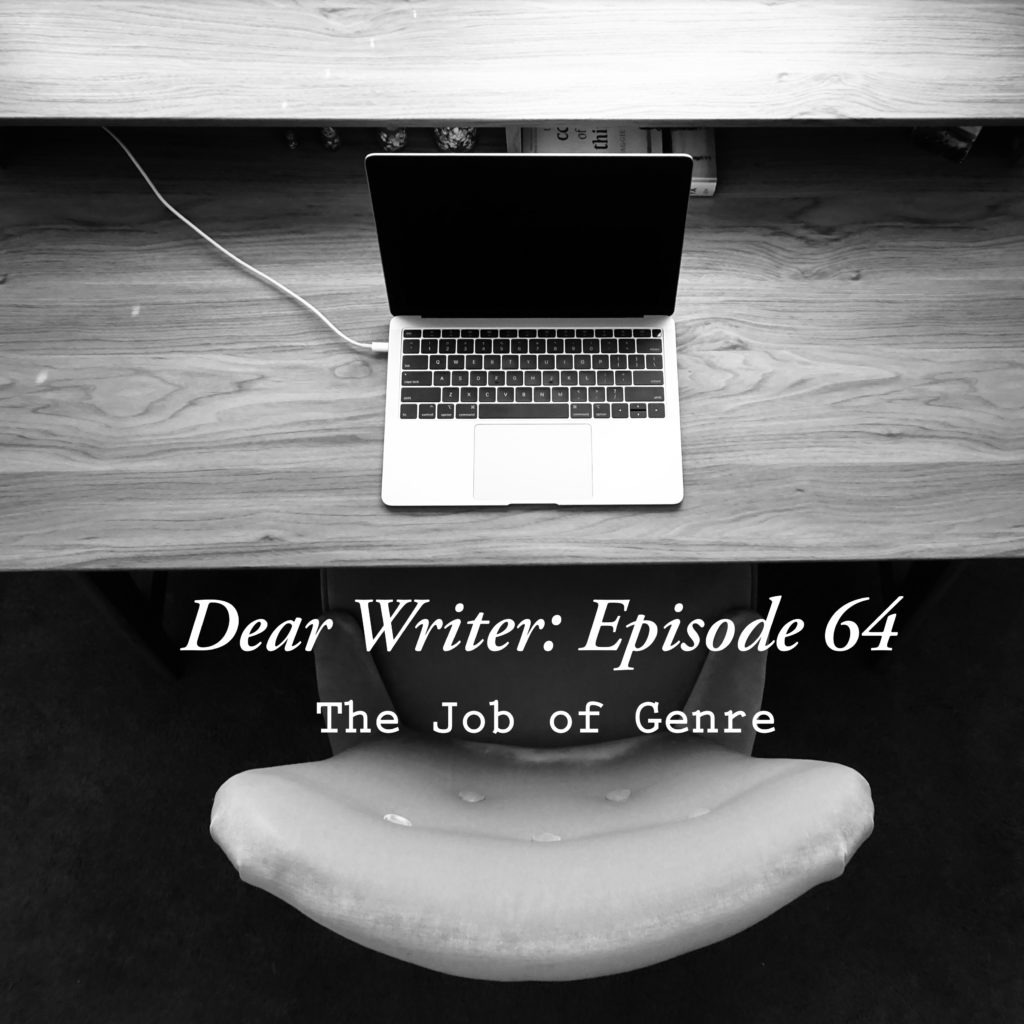
Episode Summary:
The most obvious first question to discuss is, what is genre?
Ashley: For writers, genre is a classification system of literary works based on content, form, or technique. Basically, a way to label novels to help publishers, booksellers and readers know thy type of book they are about to assess/publish/read. Common genre examples include romance, adventure, thriller, YA, fantasy, sci-fi etc. A long, and ever-expanding list.
Sarah: Broadly speaking, genre gives you a roadmap for different types of stories. Different genres have different guidelines to follow. Rules like manuscript length, character types, the setting, the theme and even the plot all change depending on the genre of your story. There are also sub-genres which more specifically allocate a certain story within an overarching genre. For example, a romance set in the middle ages might be classified as a historical romance.
Why does genre matter for writers?
Ashley: I buy books in certain genres because I know that I like those types of stories. I love historical fiction because I know the story is going to be set against a factual historical backdrop usually populated with real historical figures. I like action/adventure novels because I know it will be a fast-paced, tension-filled, action-packed story. In other words, there are reader expectations in genres. And a lot of readers only read in specific genres. For me, I hardly ever read in the romance genre. If I see a novel classified as romance, I often won’t pick it up. And for writers, it is important to be aware of this. Reader expectations are important, even if you are breaking genre conventions.
Sarah: Genres develop an expectation of a specific type of work. Because it categorizes books, it means potential readers have a fast and effective way of finding books that are more suited to their tastes. So, how that affects us as writers, is we want to fulfil reader expectations. This means paying attention to known genre conventions, yet writing our book and fulfilling these common conventions in new and interesting ways. Without a genre, you can’t know whether you’ve hit all the right points in your book, and it’s at that point where readers walk away feeling like ‘something’s missing’ from the book. Secondly, it obviously helps with marketing your book as knowing your genre helps you not only to satisfy your target audience, but to learn who your target audience is and how to reach them.
Because of the conventions mentioned above, it is clear that genre can be used as a tool for writers. If used correctly, genre can really help writers navigate planning, writing and editing of a novel. How has genre conventions and tropes helped us in writing our novels?
Ashley: I think we have used genre conventions in two different ways. When writing our historical fiction novel we have made sure that we include everything readers expect in historical fiction. We carefully selected the time period, the factual historical event, and found the real-life historical figures to include. We did a lot of research to ensure the setting of our story is accurate and (hopefully) believable. In our YA series, we didn’t really use the YA genre as too strict a guide at the beginning. And we didn’t consider the dystopian genre much either (we couldn’t even decide on the actual genre for a long time). In the editing later on, we did go back and tighten up some of the YA conventions. E.g., the ages of characters, the length of the book, and making sure everything was age appropriate.
Sarah: So we mentioned at the start about genres and subgenres. Though you might not have your exact subgenre pinned down, having an idea of the big umbrella genre is useful, as it will tell you certain things about the book. Even when talking about our YA series, we knew right from the beginning it was a YA book, which is about as broad as a genre can be but still has certain conventions and tropes which we (whether consciously or not!) followed. So we know that with YA, the characters must also be YA and of a relatable age range. Often, but not always, the POV is first-person. Or, even in third person, it allows a higher degree of intimacy to the character’s thoughts than other genres. The inciting event comes early on, because you want to capture your young audience’s attention right from the start. We know that YA books typically range between 60-100,000 words. And in terms of content, there is usually a romance subplot in the background, and the characters go through some sort of learning about self-identity. So you can see that already, by knowing the overarching genre, we have quite a few things to keep in mind when writing the novel. Then, later during edits as we cottoned onto the fact we were in the dystopian subgenre, we were able to bring specific elements further to the forefront of the novel—we heightened the setting and thought more specifically about the backstory that had led to this dystopian world, and how that might affect and colour the character’s thoughts. We also enhanced and played with the motives of the villain which made it both more realistic and fit more squarely in the realms of a dystopian teen fiction novel.
It sounds great having a formula to follow when writing your novel. But you don’t want your novel to be too cliché or riddled with overused tropes. How do we avoid making our novels too cliché?
Ashley: Personally, with genre conventions, I think there are certain core features that are required. Like a murder/crime in a whodunnit. Or an historical setting in historical fiction. Teenage protagonists in YA. But after those core requirements, I think it is really important to make sure you make realistic characters and let your characters drive the story how they want to. You don’t need to follow a prescribed script and follow your genre conventions to the letter. Include the basics but then let your amazing characters do the rest. And, if it seems too cliché – brainstorm. What are different ways you can progress your story?
Sarah: There are definitely key elements or ‘tropes’ in every genre that are required. And if you don’t know what these are in your genre, I suggest you read more extensively within your genre. But they are generally a very broad guides that set out reader expectations, and there is a great deal of flexibility when working within these tropes that mean each novel can be entirely unique. But it is easy to fall into traps of doing the same thing over and over because you yourself have seen it so many times before. The key thing is to be present rather than always allowing your mind to take the easy route. One method I’ve heard of for avoiding cliches is to turn everything on its head. So, say you’re writing a scene where your protagonist gets kidnapped. Immediately people think of a dark and dingey alley, and some rough looking men leaping out of a non-descript white van, taking your protagonist unawares. But what if you turned it around? Instead of a van, it’s a sportscar. Instead of male kidnappers, it’s a woman, or maybe even a child. Maybe your protagonist approaches their kidnappers rather than being bound and gagged. Forcing yourself to think of the opposite opens up fresh options.
We’ve talked about why genre is important, but it is also controversial. Attaching labels to creative works can be considered “pigeon-holing”. In other words, forcing novels into set categories forces people to judge work by guidelines that don’t necessarily fit the text. Do we think classifying novels by genre is controversial?
Ashley: As a reader, I think the marketing power of labelling novels in the appropriate genre can’t be ignored. Honestly, it is often how I choose books. I almost always read my go to genres (unless I have a book recommended to me) and when I go to book stores or the library my first stop is what I am familiar with. As a writer, I understand the frustration of feeling that simply categorizing a novel in one genre isn’t enough. We’ve experienced this with our YA series where it has so many themes and stories it was hard to accurately pin it in a genre without feeling we were underselling it.
Sarah: I can see why writers get frustrated by it—we just want to write our story, and why does it matter if it fits perfectly within a category that some random person has come up with? But, by settling on a genre it allows you to reach the right audience. As a reader it would be a horrific chore to find a book if there were no genres, especially with the rise of the internet—you’d be surfing the web for hours! The good thing is, if your book is cross-genre, you can market to both audiences by including it in both genre categories. Though, you may find your book leans more heavily to one genre, and therefore those readers will enjoy it more as it fulfils their expectations better, and that’s OK.
What is the importance of deciding on the genre of your novel for querying agents/publishers?
Ashley: When querying agents and publishers, you need to have a really clear idea of what our novel is, so that they have a clear idea of what your novel is. Having an idea of the genre of your novel is the first step. Also, as discussed above, genre is an important marketing tool. So, when pitching your novel to these gatekeepers, having a good handle on your genre is really important. Once we realised our YA was dystopian, it became so much easier to describe the book.
Sarah: Knowing the genre of your work is hugely important when querying agents or publishers, for a couple of reasons. 1) If you know your genre, it makes it a lot easier to pitch your book in a way that makes sense, and make comparisons to other books currently on the market that are doing well. 2) It helps you to match your book with an agent or publisher that might pick it up. For example, when we were pitching When the Rain Falls, it made very little sense to approach an agent that had specifically said something along the lines of “I enjoy lighthearted romance stories, which feature quirky characters with a well-developed sense of humor.” Our genre didn’t fall into this description, so it would be wasting both their time and ours to approach these agents.
The rise of self-publishing has enabled more novels with fluid and diverse genres to enter the marketplace. What do we see as the role of genre in self-publishing?
Ashley: The great thing about self-publishing is it allows writers to experiment with blending different genres, and publishing books which aren’t in the popular genres that traditional publishers are looking for. I think there is a market out there for these types of books.
Sarah: I think self-publishing does allow for greater flexibility and an opportunity to reach a wider audience, especially if you write more cross-genre. But you do have to put the work in to get the most out of it—don’t simply settle for the two genres you’re allowed when you set your book up in KDP. You can actually email Amazon with as many categories as you like, though you do have to do this for every amazon store, as they don’t self-populate across unfortunately! Just make sure the categories you put your book in are relevant or you will end up disappointing readers which will ultimately lead to bad reviews. This gives you a greater chance to become a bestseller in a single category, and it also means you get a wider exposure to your book.









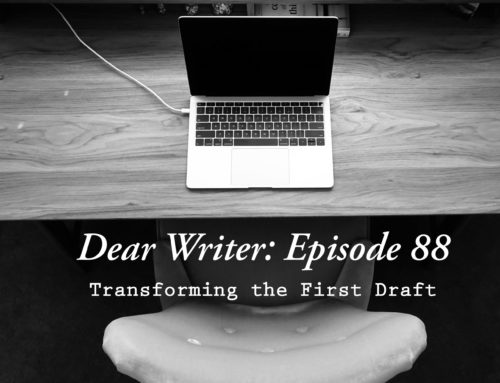
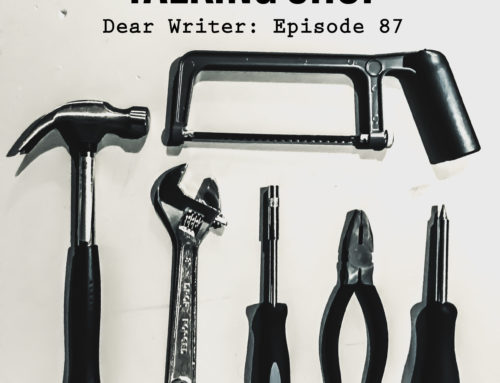

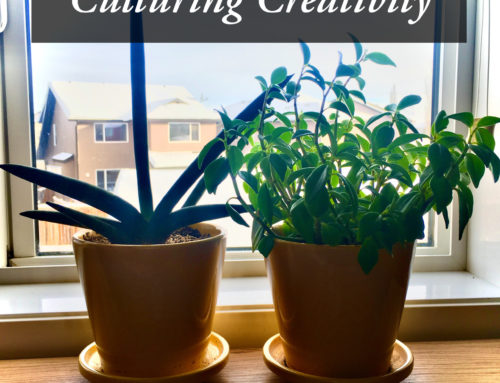

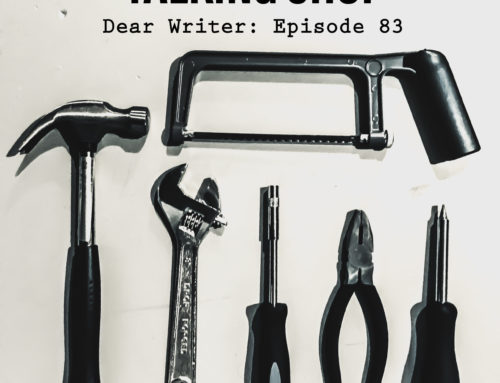


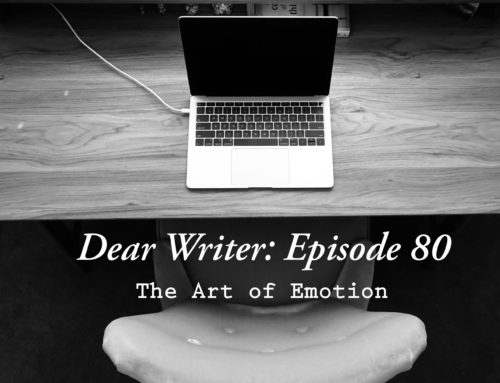
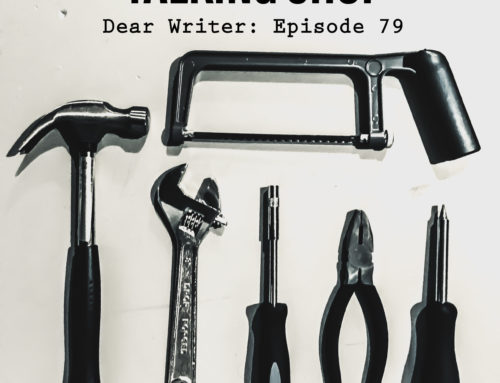
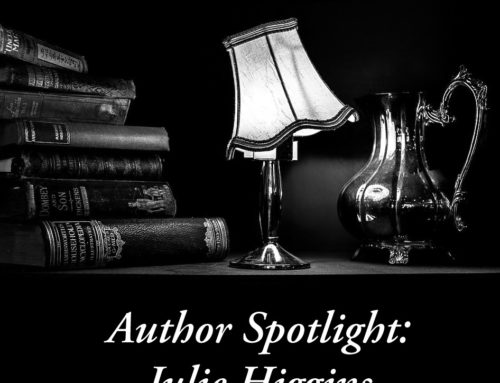
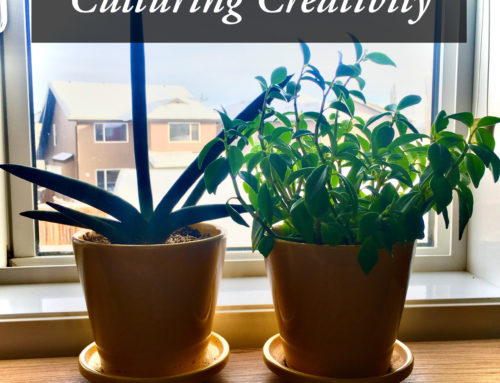
Leave A Comment